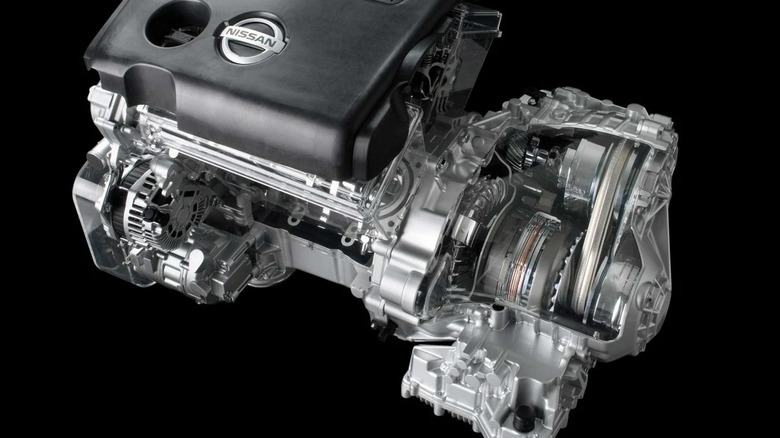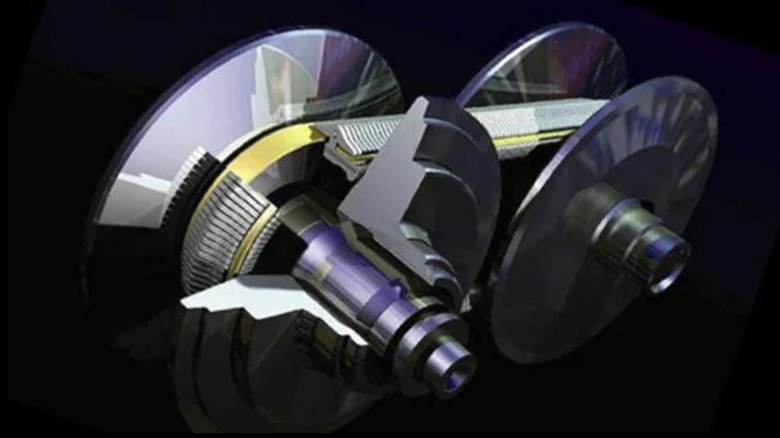Nissan CVTs: The Most Common Transmission Problems
Continuously variable transmissions (CVTs) have been growing in popularity over the last several years, and are steadily replacing traditional automatic transmissions in many small and mid-size vehicles. The primary reason being the increased fuel efficiency and smooth ride that come with CVTs: Unlike automatic and manual transmissions, CVTs do not use set gear ratios. This eliminates the characteristic jerking or jolting sensation that drivers feel when accelerating or decelerating, thus increasing gas mileage.
CVTs are especially common in Nissan, Subaru, and Mitsubishi vehicles. However, despite the reputation for efficiency and reliability that CVTs have developed, these modern transmissions are far from perfect. Nissan CVTs, in particular, have become known for pervasive problems, and the manufacturer has been the subject of numerous lawsuits surrounding its transmissions.
In response, Nissan extended the warranties for certain vehicles with CVTs, produced special service bulletins for these models, updated and improved its CVT design, and offered settlements and buybacks for affected customers. Despite attempts to improve the image of its continuously variable transmission, Nissan's CVT continues to have a reputation for being unreliable. From overheating, to shuddering and strange noises, these are the most common Nissan CVT problems.
Overheating problems
One of the primary issues plaguing Nissan CVTs is an overheating problem. Continuously variable transmissions generate a lot of heat, and require a robust cooling system to prevent damage over time. According to a breakdown of the transmission by YouTube mechanic speedkar99, the stock cooling system that Nissan installs on its CVTs is insufficient at absorbing and removing heat from the transmission effectively.
This results in the degradation of parts over time and can contribute to the failure of other components within the CVT system. When Nissan's CVT overheats, it produces a characteristic burning smell. Transmission fluid — or, in this case, CVT fluid — smells extremely acrid when it burns. However, the odor isn't the worst symptom of an overheating CVT.
As mentioned, this problem can damage the transmission over time, but it can also cause more immediate problems. If temperatures climb high enough, the vehicle may enter limp mode, which will cause all non-essential functions to shut down and significantly reduce the speed at which the car can move. When this occurs, drivers should pull over and call for help if on the highway, or cautiously drive home/to a repair shop if it's safe to do so.
In response to rampant CVT overheating, Nissan offered an external cooler upgrade to affected customers under warranty. However, this solution does not always work, and many owners have been forced to replace the entire transmission.
Shuddering
Another widespread problem with Nissan CVTs is shuddering. Shuddering — or juddering — refers to shakes and vibrations the driver and passengers can feel inside the vehicle. Occupants may experience vibrations in the vehicle seats, pedals, or steering wheel, especially at low speeds or when taking off from a stationary position.
When caused by a faulty CVT, shuddering is typically due to a worn-out belt or faulty pulleys inside the continuously variable transmission. Nissan's CVT belt is made from steel, which makes it especially susceptible to stretching and damage over time. Furthermore, CVTs are ideal for small economy cars with less powerful engines. Too much horsepower and the CVT belt and pulleys may become damaged.
In Nissan's case, the automaker has not limited its use of CVTs to small vehicles. Instead, Nissan has a record of installing CVTs in some of its larger, more powerful cars, like the Nissan Pathfinder. The Pathfinder has a more robust engine than Nissan's smaller economy cars, which may put too much stress on the CVT, resulting in damage to the belt and pulleys issues like shuddering and vibrations.
Nissan offered affected customers a software update for the transmission control module (TCM). However, this solution only helps technicians diagnose these issues more quickly, and does not fix the core problem with Nissan's CVTs.
Whining or humming noises
A third common symptom of a faulty Nissan CVT is a whining, grinding, or humming noise. Strange noises coming from your car are never welcome, but often, they help owners and mechanics understand and diagnose a problem. In the case of Nissan's continuously variable transmissions, a whining or humming noise is usually indicative of faulty or worn-out bearings or gears within the CVT system.
Specifically, a whining noise during acceleration or at highway speeds is typically due to worn-out bearings inside the CVT oil pump. While most auto parts are subject to wear and tear over time, Nissan's CVTs are known for developing these issues while still relatively new, implying that there are potentially fundamental flaws in Nissan's CVT design.
When the CVT oil pump goes bad, the transmission must be removed from the vehicle for an overhaul. This may include replacing the oil pump alone or — more likely — replacing a series of damaged parts, as the faulty oil pump will most likely lead to further damage to the CVT system.
How to protect your Nissan CVT
Due to the frequency with which Nissan CVTs are known to fail, many drivers are wary of purchasing a Nissan vehicle. While Nissan has taken some steps to address these issues — including issuing special service bulletins and extending warranties for affected cars — many Nissan vehicles remain compromised.
However, what if you already own a Nissan car with a CVT? Are there steps you can take to protect your vehicle's transmission and prolong its life? The answer, despite the Nissan CVT flaws, is yes. Just like a standard automatic or manual transmission, CVTs require regular maintenance. The most important thing you can do to protect your CVT is follow the manufacturer's instructions regarding maintenance.
In your owner's manual, you can find a recommended service schedule for your vehicle. This schedule includes things like oil changes, coolant flushes, and transmission fluid services. Following this schedule isn't a guarantee that your CVT won't fail at some point, but it can help with warranty fulfillment.
Outside of following your manufacturer's recommended maintenance schedule, a couple of other tips to protect your CVT include driving conservatively — i.e., don't off too quickly from intersections or drive aggressively — and avoiding towing heavy loads. Outside of that, though, be wary of Nissan's CVT vehicles and keep an eye out for the symptoms to hopefully avoid any pricy repairs.




